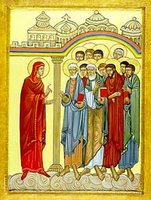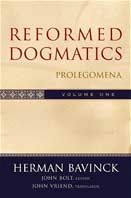
A few months ago, I had the chance once again to sit under Dr. Harry Schaumburg. He is the executive director of
Stone Gate Resources, a ministry designed to help men and women toward purity in a sexually charged culture. (I think he looks just like Sean Connery.) I had the priviledge of sitting under his teaching through a Men's Conference at
BBC two years ago, where I was very impressed and helped in my own struggle for purity. I purchased his book,
False Intimacy, and thoroughly enjoyed it as a helpful resource for men and women, as it both clarifies, warns, and encourages.
Dr. Schaumburg is no theological, or psychological, slouch, and I appreciated his, perhaps unwitting, candor in dealing with a bunch of Calvinist Bethlehemites. He exhorted us not to have a theology that lets sin off the hook in the name of predestination, and one that ranks perseverance so high, one cannot see that there is no sense of regeneration in them.
The notes are, of course, a bit scattered, but hopefully they are sufficiently clear. They should remain my property, and in no way should Dr. Schaumburg or SGR be held responsible for anything contained below. May it help us all press on in the Long War.
Dr. Harry Schaumburg
February 24, 2006
Purity Conference
Restoring sexual Purity;
In our lives, our marriages, and in our churches
The Truth About Your Sexuality
· Philosophically: our thinking has become twisted so that we cannot think properly about sex.
· 4 Counterfeits to True Sexual Morality
· Romantic sexual Morality
· Playboy Sexual Morality (based on pleasure)
· Therapeutic Sexual Morality (sex for my psychological well- being)
· Pagan Sexual Morality (sex is a spiritual ''right'')
_____________________
· Spiritually: We are in a crisis and face a huge challenge (I Corinthians 5:1-2)
C. Swindoll - 50% of those in church are looking @ Internet porn
20% of men admit to looking @ porn...
13% of women admit to looking @ porn...
...at work
90% of 13 - 16 year olds have been looking @ Internet porn
33% of visitors to adult web sites are women
9% thought their spouse struggled, while 76% admitted to struggling themselves
_______________________
· Psychologically: We have made our personal/relational needs to be as critical as or biological needs.
The truth about our sexuality starts with an understanding of:
1. A warning to the saints
I Corinthians 6:9-11; Galatians 5:20 - 21; Ephesians 5:5; Hebrews 13:4
2. The security of the believer is based on the prior work of Christ
3. The cross points to the truth about our sexuality
''All things are lawful, but I will not be enslaved"
Christian living is not based on whether I have a right to do something but whether my conduct is helpful to those around me.
· We think our body belongs to us (I Corinthians 6:13b)
· We have a low view of our dignity and destiny (I Corinthians 6:14)
SO WHAT IS OUR BODY MEANT FOR?
I CORINTHIANS 10:31- THE LORD
Your body is not meant for sexual immorality, but for the Lord. And the Lord is meant for your body.
Q&A:
People can be "free of the problem" but are always vulnerable and wounded
Labels: downloads, the long war

































































